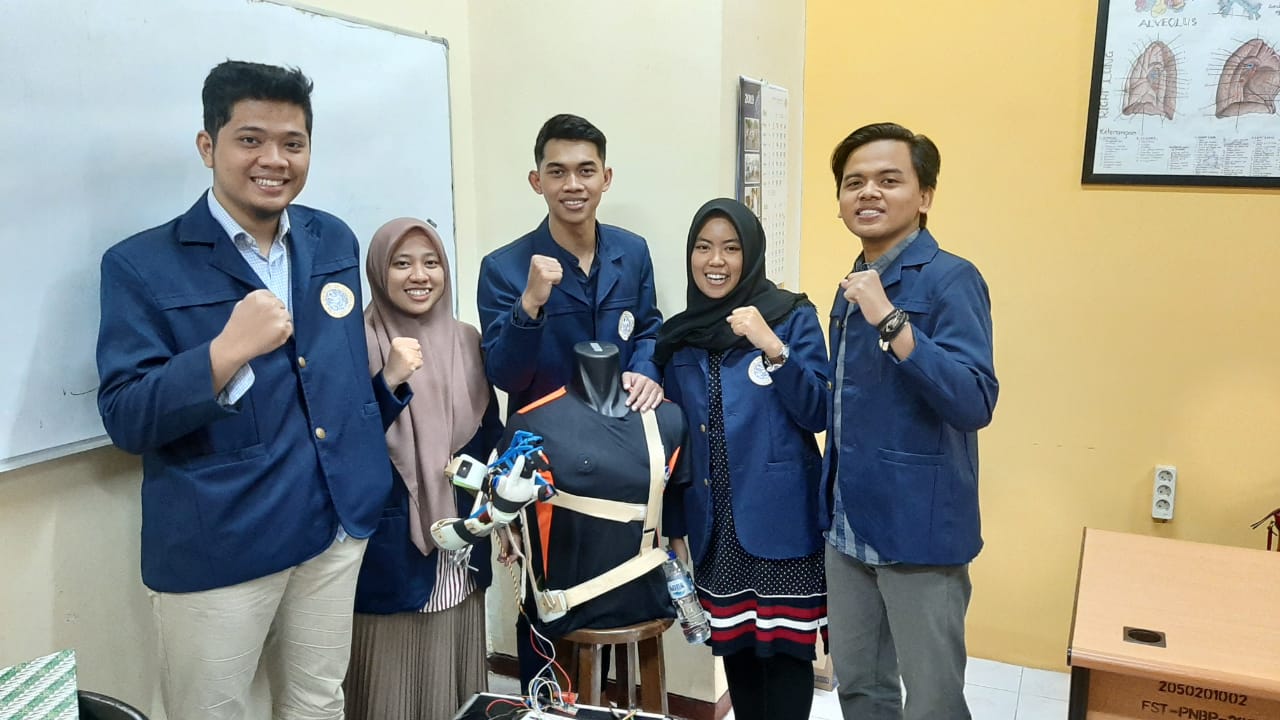UNAIR NEWS – Students of Biomedical Engineering Program Universitas Airlangga (UNAIR) created an exoskeleton as a tool for the patient of Brachialis Plexus Injury (BPI) or brachial plexus injury. The team are Aisyah Widayani (2015), Septian Indra Wicaksana (2015), Muwaffaq I’zaz Al-Amin (2015), Nuzula Dwi Fajriaty (2016), and Muhammad Thoriqul Aziz Endryantoro (2017) with the theme of PKM proposal entitled ” Upper Limb Assistive Device: Exoskeleton Based on Voice Recognition for Brachial Plexus Injury RSUD DR. Soetomo Surabaya “.
Moreover, Aisyah as the team leader said that BPI is one of the peripheral nerve injuries that causes upper extremity paralysis due to the breakdown of connectivity between nerves and the motor system of the arm. “Narakas, with its seventy rule, states that 70% of BPI occur because of traffic accidents,” he explained.
Furthermore, Aisyah said that Dr. Soetomo as one of the central Referral Center Hospitals in East Java that serves BPI patients said there were 143 BPI patients in January 2016-May 2017 with an average of 8 cases each month. During this time, he continued, the handling that could be done in the form of neurosurgery with a relatively high risk of costs and other offers by doing daily movement exercises or Activity of Daily Living (ADL) using an exoskeleton.
“However, the exoskeleton is applied using body motion techniques and using an integrated electrical system,” he added.
Furthermore, it can affect ADL training time because the patient’s adaptation to this technique depends on each’s skills. Likewise, with an electrical system that still has the potential for a short circuit to interfere with the ADL process of BPI sufferers.
“That is our reason for improving the service facilities of Dr. RSUD Soetomo, specifically for Medical Rehabilitation Installation Team of Student Creativity Program for Application of Technology (PKM-T), “he said.
In the end, Aisyah also explained that works based on voice recognition were complemented by Artificial Intelligence (AI) and feature extraction to recognize individual sound characteristics. Seeing the condition of BPI sufferers that continues to increase, it requires time efficiency in ADL training process.
“Hopefully, it can improve the quality of services and the life of Indonesian people, “he concluded.
Author: PKM-T ULAT TEAM Editor: Nuri Hermawan





